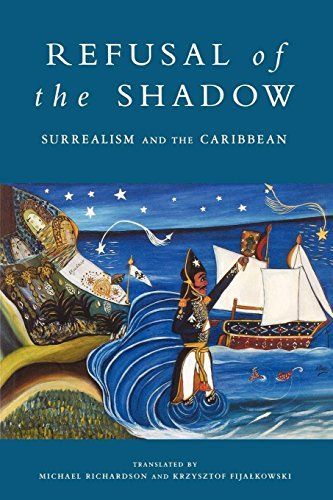
Refusal of the Shadow Surrealism and the Caribbean
In 1932, at the peak of French colonialism, a group of Martiniquan students at the Sorbonne established a Caribbean Surrealist Group, and published a single issue of a journal called Légitime défense. Immediately banned by the authorities, it passed almost unnoticed at the time. Yet it began a remarkable series of debates between surrealism and Caribbean intellectuals that had a profound impact on the struggle for cultural identity. In the next two decades these exchanges greatly influenced the evolution of the concept of negritude, initiated revolution in Haiti in 1946, and crucially affected the development of surrealism itself. This fascinating book presents a series of key texts—most of them never before translated into English—which reveal the complexity of this relationship between black anti-colonialist movements in the Caribbean and the most radical of the European avant-gardes. Included are René Ménil’s subtle philosophical essays and the fierce polemics of Aimé and Suzanne Césaire, appreciations of surrealism by Haitian writers, lyrical evocations of the Caribbean by André Breton and André Masson, and rich explorations of Haiti and voodoo religion by Pierre Mabille and Michel Leiris.